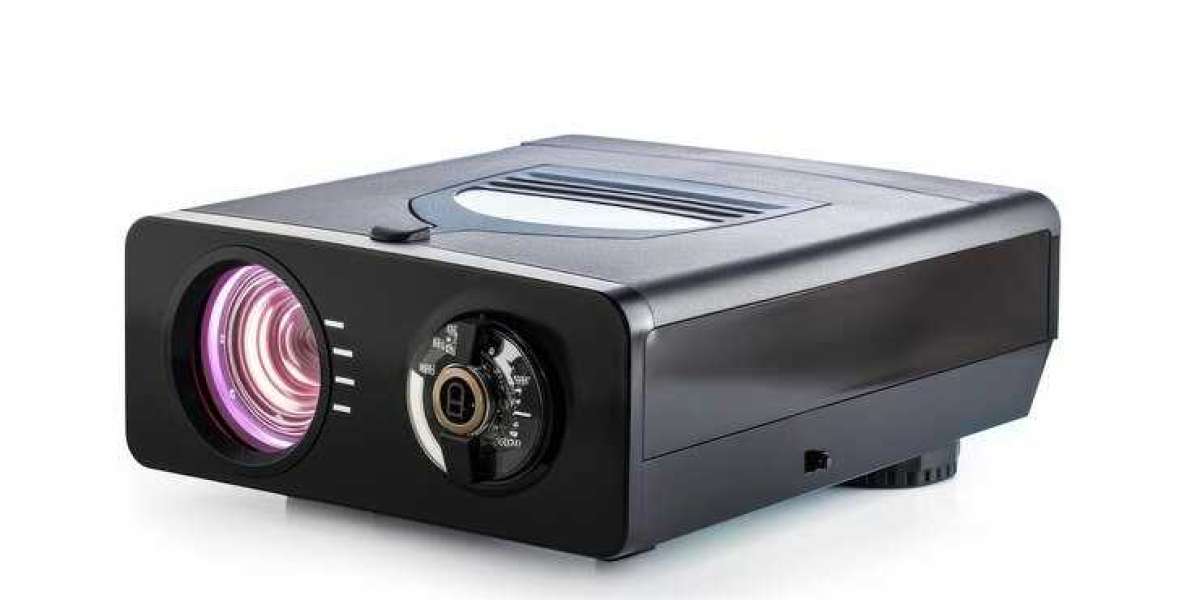Projectors have become an essential tool for home entertainment, business presentations, education, and even gaming. With the wide array of options available today, it can be overwhelming to choose the right one. Whether you're looking to create a home theater experience or need a reliable projector for your business, understanding key features and how they match your needs is critical.
In this guide, we'll walk you through the different types of projectors available and help you make an informed decision before purchasing one. Let’s dive into the essentials of choosing the best projector for your needs.
Types of Projectors
When it comes to projectors, there are several categories based on their intended use and features. Understanding the type of projector you need is the first step in making the right choice.
Home Theater Projectors
Home theater projectors are designed to offer high-quality images, rich colors, and immersive sound for watching movies and shows. They are perfect for setting up a cinematic experience in your living room. Many home theater projectors support Full HD or 4K resolution, providing stunning picture quality.
Business Projectors
These projectors are optimized for presentations, meetings, and office use. They typically have bright lumens to ensure that the projected images are clear even in well-lit rooms. Business projectors prioritize functionality over ultra-high image quality and often come with features like wireless connectivity and quick setup.
Portable Projectors
For those who are always on the go or need a projector for small spaces, portable projectors are the ideal choice. They are compact, lightweight, and easy to carry. Many portable models now offer decent image quality, making them perfect for outdoor movie nights or impromptu meetings.
Gaming Projectors
Designed with gamers in mind, these projectors offer low input lag and high refresh rates to ensure smooth gaming performance. They provide a large, immersive display that enhances the gaming experience, especially for high-action games.
Key Factors to Consider When Choosing a Projector
Once you've determined the type of projector you need, the next step is understanding the key features to look for. Below are some crucial factors to consider when buying a projector.
Resolution
The resolution of a projector determines the clarity of the image. Higher resolutions provide sharper and more detailed images. Common projector resolutions include:
- SVGA (800x600): Suitable for basic presentations and low-end use.
- WXGA (1280x800): Ideal for widescreen presentations.
- Full HD (1920x1080): Great for home theaters and entertainment.
- 4K UHD (3840x2160): Perfect for high-end home theaters and gaming, providing the best image quality.
Brightness (Lumens)
Brightness, measured in lumens, is one of the most critical factors when choosing a projector. The higher the lumens, the brighter the projection. If you're planning to use the projector in a dark room, you may not need high lumens, but in well-lit environments, opt for a projector with 3,000 lumens or more.
Contrast Ratio
The contrast ratio measures the difference between the darkest and brightest parts of the image. A higher contrast ratio provides deeper blacks and more vibrant colors, essential for movies and gaming.
Throw Distance
Throw distance refers to the space between the projector and the screen. A short-throw projector is great for small rooms, as it can project a large image from a short distance. In contrast, standard-throw projectors need more space.
Portability
If you need a projector for travel or outdoor use, portability is key. Look for models that are lightweight and compact, with built-in batteries for added convenience.
Lamp Life
Projector lamps have a limited lifespan, typically ranging from 2,000 to 20,000 hours depending on the type of lamp used. LED and laser projectors tend to have longer-lasting lamps compared to traditional bulb projectors.
Connectivity Options
Modern projectors come equipped with various connectivity options to accommodate different devices. Before purchasing, ensure that the projector supports the connections you need, such as:
- HDMI: For connecting laptops, Blu-ray players, and gaming consoles.
- USB: To play media directly from a USB drive.
- Wi-Fi and Bluetooth: For wireless connectivity, streaming, and connecting to smart devices.
Budget Considerations
Projectors come in a wide range of prices, so it’s important to set a budget that aligns with your needs. If you're setting up a high-end home theater, you might need to invest in a 4K projector, which can be more expensive. However, if you just need a projector for occasional use or business presentations, there are plenty of affordable options that provide good value for money.
Screen Size and Setup
The size of the screen you plan to project onto also matters when selecting a projector. Some projectors are capable of projecting images up to 300 inches, while others may be more suited for smaller screens. Additionally, consider the ease of setup, especially if you’ll be moving the projector frequently.
Audio Capabilities
While many projectors come with built-in speakers, their quality may not always be top-notch. If sound quality is important to you, especially for home theater use, consider a projector with good sound output or invest in external speakers for an enhanced audio experience.
Reviews and Brand Reputation
Before making a final purchase, it’s worth reading reviews and considering the reputation of the brand. Some trusted projector brands include Epson, Optoma, BenQ, and Sony. By looking at reviews, you can get insights from other customers and understand the strengths and weaknesses of a particular model.
Conclusion
Choosing the right projector involves understanding your specific needs and balancing them with the projector’s features. Whether it’s for a home theater, gaming, business presentations, or portability, there’s a projector out there that will suit your requirements perfectly. By considering factors like resolution, brightness, connectivity, and your budget, you can make an informed decision and enjoy a seamless visual experience.







